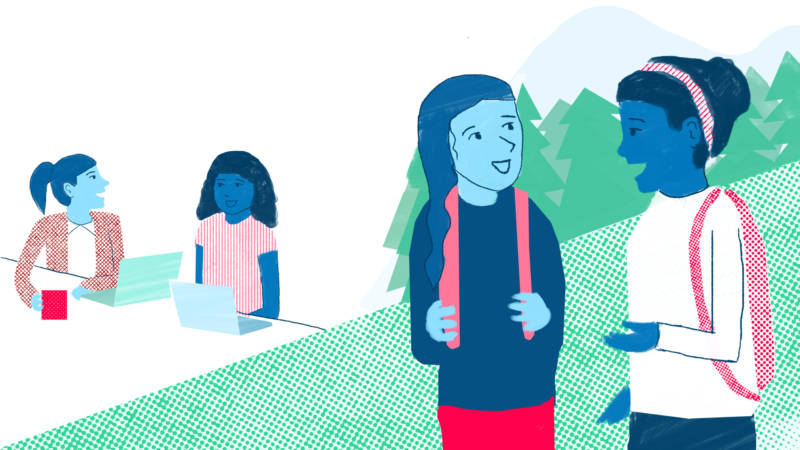Tip #1: Put In The Time
Jeffrey Hall, who studies friendship formation at the University of Kansas says you’ll need to spend a lot of time with a friend to make them closer.
“It takes between 40 and 60 hours to be able to become a casual friend. Then roughly 80 to 100 hours to become a friend. And over 200 hours to become a close your best friend,” he says.
While it may be surprising that you can quantify friendship, Hall says those numbers signify more than just time, they signify priorities. “When you like someone, prioritize spending more time with them doing a variety of things.”
Hall says the time you spend with your friend crush can’t just be passive. Sitting next to a person at work everyday does not solidify friendship. You need to do things together (walks in the park, cooking dinner, watching a movie) or you have to talk to them (having meaningful conversations, catching up or joking around).
“There is some evidence that men prefer friendships where they have something to do when they are together… like helping each other with a project or something,” says Hall.
Tip #2: Context Shift
“You can develop closeness in friendships through asking people to spend time with you outside the place you met. So inviting people to spend time with you outside of work or school, if you met there,” says Hall, who’s working with a graduate student at the University of Kansas to publish a paper on the topic. “It also establishes that they’re not only someone you want to spend time with, but someone you might want to get to know in a different way, by being outside the context where you met.”
It can be scary to ask someone to context shift, but it might be less intimidating if you can invite your potential friend to an experience they might enjoy.
Tip #3: Call Them Back
For all kinds of friendships to survive, they have to be reciprocal. Both people need to be making an effort, both people need to have similar levels of reciprocity to survive. A study found that returning someone’s call is the greatest predictor of a lasting relationship.
Tip #4: Flaws and All (Don’t Go Too Fast)
There are a handful of studies on how to become more likable. Two methods include confiding in others and showing your flaws. But Hall points out that if you use those as intentional strategies it could come off as strange and socially awkward.
“One of the risks of saying some oddball fact about myself, or offering some way in which I’m flawed, might come off as needy or over-disclosing too early in the friendship,” says Hall.
Hall also adds that most people self-disclose, or share secrets, with people they already like.
“It’s feeling a sense of affinity for someone else … we tell them more about ourselves because we’ve established a sense of trust and responsiveness when someone is a great listener,” says Hall.
So while you could try to endear someone to you by revealing flaws and telling secrets, feel it out and see if the moment and the person are right.
To hear more about the how to deepen friendships and the potential role of government in reducing loneliness, listen to the episode by clicking the play button at the top of the page.

